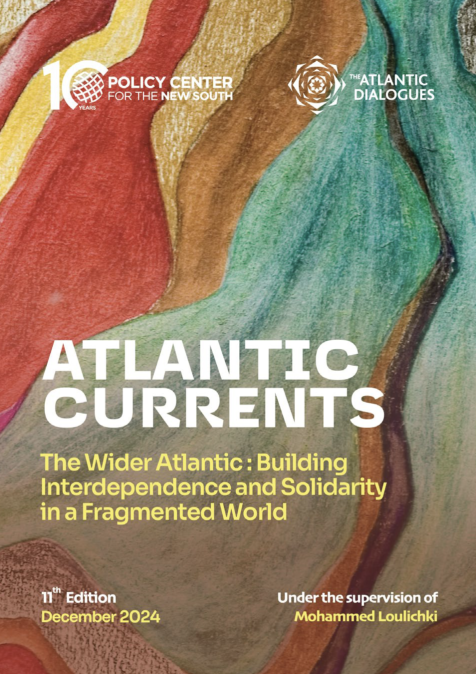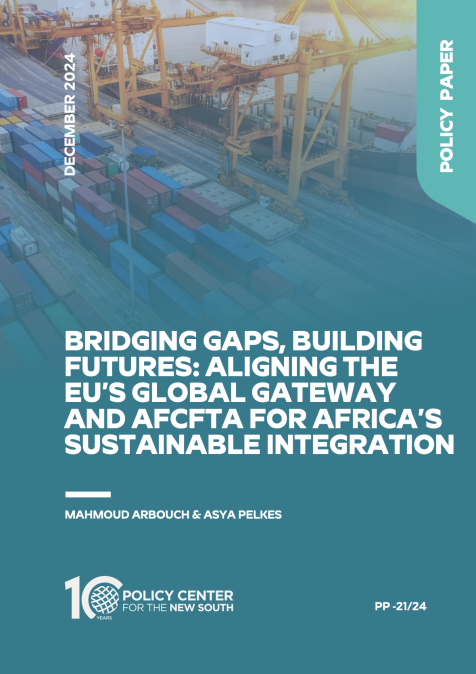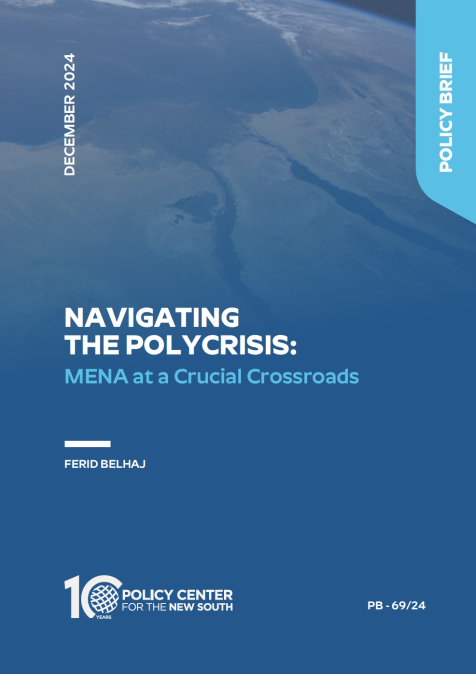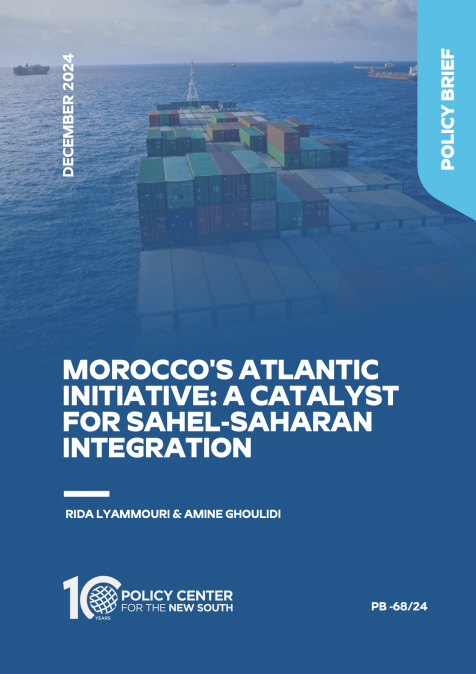In this interview, with Mr.Carlos Alexandre Monteiro Reis, Head of the Rabat Programme Office, UNOCT, Morocco, we discuss the current efforts being undertaken to counteract the radicalization of extremist movements, as well as the need for enhanced cooperation to support impoverished and less educated regions. We explore the connection between extremism and socioeconomic conditions, examining how collaboration can effectively address and mitigate these phenomena.
RELATED CONTENT
-
AuthorsAsya PelkesDecember 19, 2024The European Union’s (EU) Global Gateway initiative, established to enhance global connectivity and sustainable infrastructure, offers a significant opportunity to align with Africa’s development goals under the African Continental Free Trade Area (AfCFTA). However, the challenge lies in whether the Global Gateway can effectively complement AfCFTA’s objectives of boosting intra-African trade and industrialization by addressing critical infrastructure gaps. This paper examines how th ...
-
-
AuthorsDecember 18, 2024The Middle East and North Africa (MENA) region is at a critical juncture, facing an intricate polycrisis defined by interlinked challenges including energy insecurity, water scarcity, migration, conflict, and socio-political fragmentation. These crises are not isolated; their interconnectedness amplifies their impact, creating a destabilizing feedback loop that hinders sustainable development and peacebuilding efforts. This paper explores the concept of polycrisis through the lens o ...
-
Lula at Midterm: The G20 Summit in Brazil at the Intersection of Domestic and Foreign Policy AgendasAuthorsNizar MessariDecember 18, 2024The G20 Summit held in November 2024 in Rio de Janeiro, Brazil, under the Brazilian G20 presidency, showed what decentering from the Western agenda and Western domination of world politics could mean. The summit’s main achievement was the constitution of an Alliance against Hunger and Poverty, with a membership of, and funds mobilized from, not only all G20 members, but also from more than 60 other countries. In fact, what the West showed was discomfort at not having its agenda, its ...
-
AuthorsForeword by Karim El Aynaoui (PCNS), Paolo Magri (ISPI), Samir Saran (ORF)December 14, 20242024 marked the largest election year in history, with millions of people across the world going to the polls to elect their representatives and leaders. However, in the Global North, Donald Trump’s decisive election victory in the United States threatens to undermine multilateral governance structures that are already under strain. In the Global South, emerging economies from the expanded BRICS group and beyond strive to speak with a single voice, and their actions continue to be s ...
-
 AuthorsUnder the supervision of Mohammed LoulichkiDecember 12, 2024The 11 edition of Atlantic Currents explores the evolving dynamics within the Atlantic region. As the world grapples with profound transformations and unprecedented challenges, the Atlantic Basin emerges as a strategically significant area, transcending the traditional perception of marginalization. The 2024 edition highlights the intensifying political, economic, and societal exchanges across the region, showcasing its potential to address shared global challenges effectively and ...
AuthorsUnder the supervision of Mohammed LoulichkiDecember 12, 2024The 11 edition of Atlantic Currents explores the evolving dynamics within the Atlantic region. As the world grapples with profound transformations and unprecedented challenges, the Atlantic Basin emerges as a strategically significant area, transcending the traditional perception of marginalization. The 2024 edition highlights the intensifying political, economic, and societal exchanges across the region, showcasing its potential to address shared global challenges effectively and ... -
Kidane Kiros & Paul IsbellDecember 11, 2024The Atlantic Basin holds unique promise as a space for fostering liberal international cooperation amidst growing global fragmentation. Historically dominated by the Northern Atlantic, th ...
-
Kidane Kiros & Paul IsbellDecember 11, 2024The Southern Atlantic is emerging as a pivotal region in global power dynamics, situated at the intersection of competing realist and liberal perspectives. Historically overlooked in favo ...
-
AuthorsAmine GhoulidiDecember 10, 2024Morocco, leveraging its strategic position and proven expertise in infrastructure development, has proposed an ambitious framework to reconnect the Sahel to global supply chains via its Atlantic coastline. The Sahel’s vast distances and dispersed population have historically deterred significant infrastructure investments, perpetuating a cycle of underdevelopment. Morocco's strategic initiatives in infrastructure stand out as potentially transformative, adopting a comprehensive appr ...
-
 AuthorsZakaria ElouaourtiDecember 8, 2024This paper was originally published on accscience.com The Coronavirus disease 19 (COVID-19) pandemic has significantly affected the global workforce, with certain occupational groups facing greater challenges than others. Atypical part-time, temporary, and gig job workers are among the most vulnerable. This paper first examines the impact of the COVID-19 health crisis on atypical/ contingent workers by firm size, industry, and region. Second, we explore the factors determining the ...
AuthorsZakaria ElouaourtiDecember 8, 2024This paper was originally published on accscience.com The Coronavirus disease 19 (COVID-19) pandemic has significantly affected the global workforce, with certain occupational groups facing greater challenges than others. Atypical part-time, temporary, and gig job workers are among the most vulnerable. This paper first examines the impact of the COVID-19 health crisis on atypical/ contingent workers by firm size, industry, and region. Second, we explore the factors determining the ...








